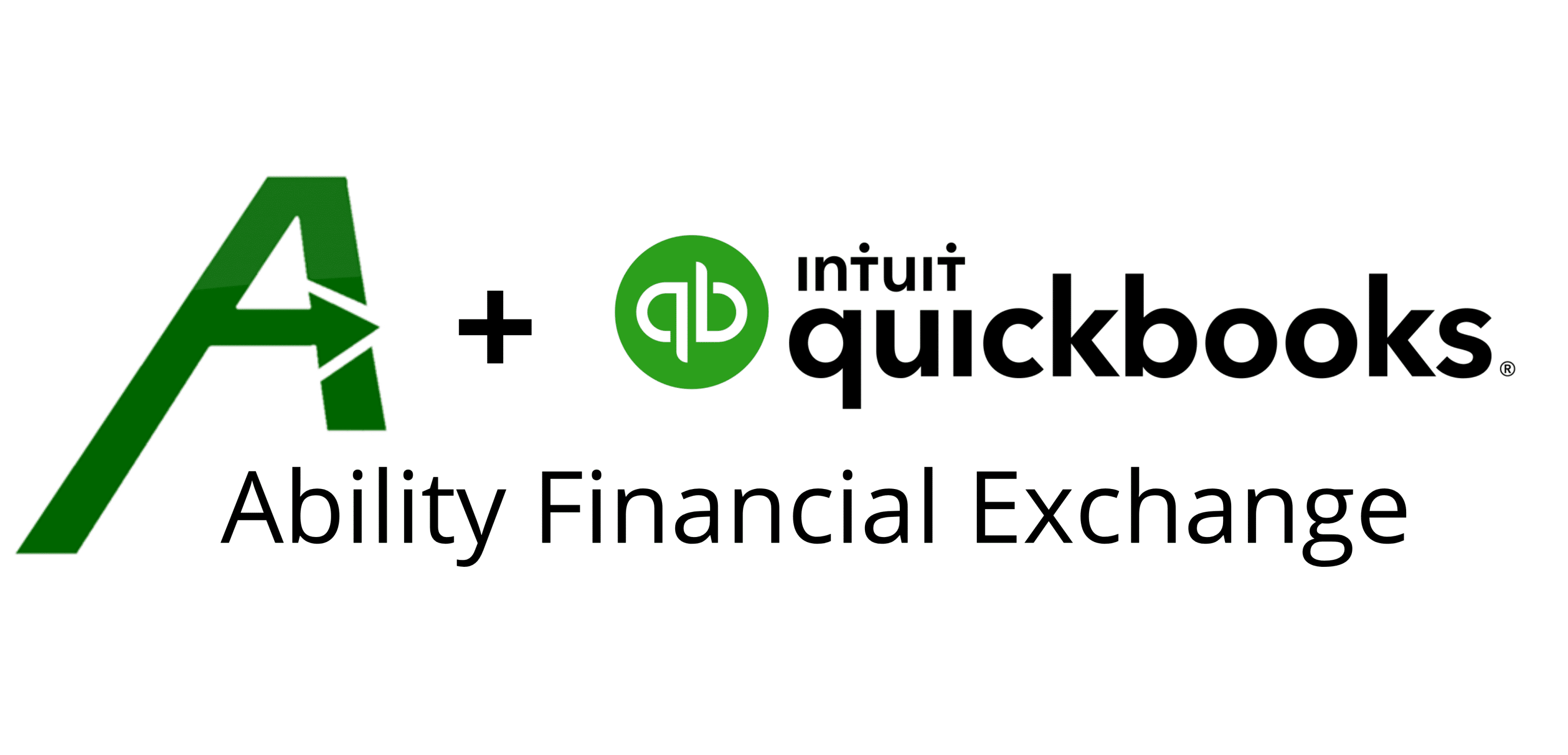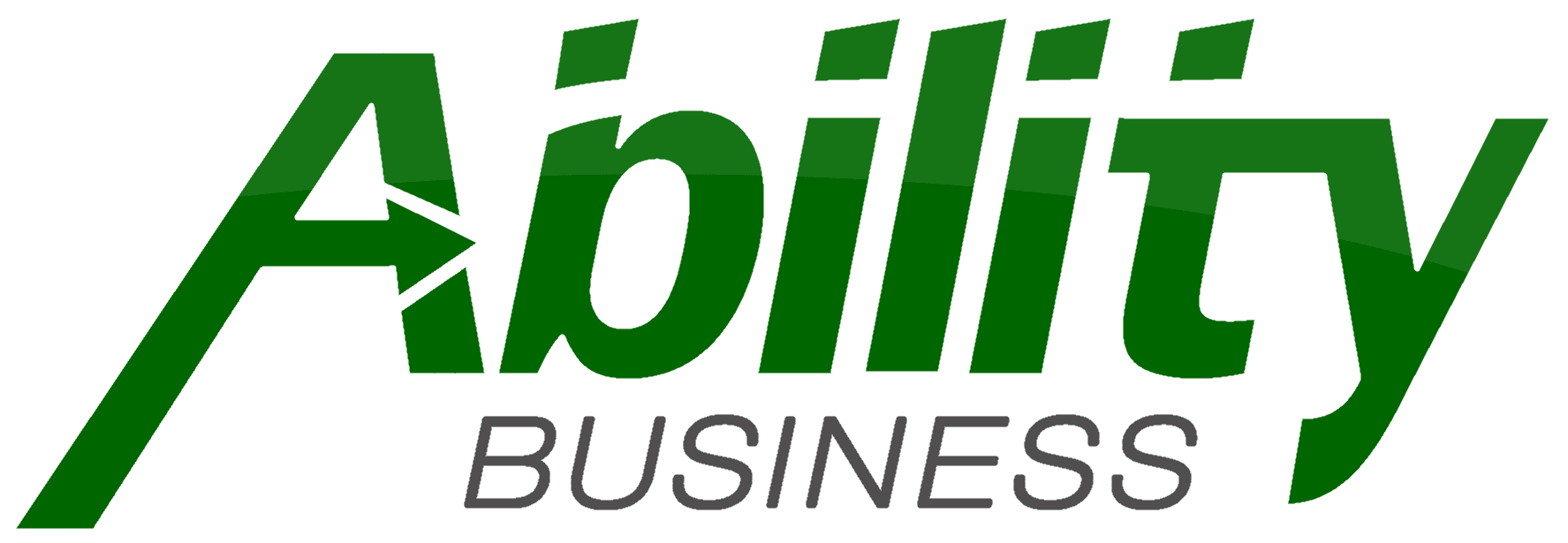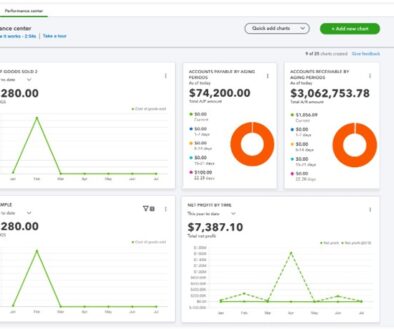Importance of a scalable sync solution for QuickBooks Point of Sale: Ability Financial Exchange for QuickBooks Online

Retail point of sale scalability is an essential issue for brick-and-mortar retailers with store and online eCommerce operations. Scalable software systems let retail businesses efficiently handle their long-term strategic needs without losing traction as growth occurs. Scalability includes ways to drive omnichannel growth that extends to online sales (eCommerce).
This article defines scalability for retail point of sale merchants and how it applies to small businesses and medium-sized companies needing to scale their growth.
Our analysis is presented in general terms and relative to QuickBooks Point of Sale, QuickBooks Online, and Ability Financial Exchange for QuickBooks Online, the sync tool from Ability Business. Retailers with store-based point of sale register operations use AFE to sync point of sale with QuickBooks Online.
What is Scalability?
Scalability is the ability to handle business growth with systems and company infrastructure efficiently. As the business grows and scales, performance levels can meet increasing users, business needs, and workflows, providing economy of scale. Resources, including software systems, inventory, fixed assets, and human capital, are used optimally and added or expanded when needed.
Scalability provides an easy transition for matching and handling growing business needs over time.
Scalability Issues in Retail Point of Sale
In retail businesses using point of sale, scalability issues include the ability to:
- increase the number of POS registers in the software system while maintaining performance levels
- add retail locations
- add online eCommerce retail solutions to brick-and-mortar store operations, using an omnichannel approach to selling, and
- monitor retail performance with QuickBooks Online and QuickBooks POS.
QuickBooks Point of Sale Desktop includes eCommerce integration with Webgility, a separate product and service to add to QB POS and your budget. Webgility allows your retail business to integrate with your choice of:
- Amazon
- BigCommerce
- eBay
- Etsy
- Magento
- Shopify
- WooCommerce, and
- Walmart.
Does QuickBooks Online work with point of sale? Yes, with Ability Financial Exchange for QuickBooks Online (AFE) from Ability Business. Besides offering AFE sync tools, Ability Business is an award-winning QuickBooks Solution Provider and member of the QuickBooks Point of Sale Council.
To monitor retail performance from QuickBooks Online cloud accounting software and QuickBooks POS, add sync software that goes beyond the QuickBooks POS native ability to only sync QuickBooks Point of Sale Desktop to on-premises QuickBooks Desktop software. The solution for two-directional syncing is Ability Financial Exchange for QuickBooks Online (AFE), available from Ability Business.
Scalability Included in QuickBooks Point of Sale and QuickBooks Online
Consider built-in scalability from the viewpoint of QuickBooks Point of Sale, then QuickBooks Online separately. In the next section, we’ll describe the synergies added by using Ability Financial Exchange for QuickBooks Online to exchange data with QuickBooks POS and QuickBooks Online.
This roll-up of retail point of sale scalability to a new dimension helps your business handle growth plans and manage operations from more locations, including anywhere access to the cloud.
QuickBooks Point of Sale Desktop handles multiple registers and multiple retail locations, using recommended point of sale hardware devices. QuickBooks POS software handles both in-person and online sales transactions, including eCommerce with Webgility integration.
With QuickBooks Online, users can upgrade QuickBooks Online to a higher-level QuickBooks Online software plan matching a growing number of business users.
How is Ability Financial Exchange for QuickBooks Online Scalable?
Using scalable Ability Financial Exchange (AFE) to sync point of sale with QuickBooks Online, retail POS integrates with QuickBooks Online. Syncing with QBO instead of QuickBooks Desktop goes beyond the standard functionality provided by QuickBooks Point of Sale Desktop retail software for stores.
After you enable Ability Financial Exchange for QBO, you’ve bridged the gap between the point of sale and QuickBooks Online.
For new users of QuickBooks Online, besides syncing with AFE to exchange data with POS and QuickBooks Online, you’ve also opened the gates to increasing productivity, streamlining and automating workflows, and reducing the time required to close the books.
QBO users can get other SaaS third-party apps that add QuickBooks Online capabilities to perform specialized functions not included in the software. That’s one type of scalability that AFE adds for brick-and-mortar retailers new to QBO.
Existing QuickBooks Online users already have add-on software access for stand-alone QBO. Still, they’re using two separate software systems that aren’t communicating, reducing efficiency, assets optimization, and available insights.
Ability Financial Exchange handles multiple registers at different retail locations, from a hardware and locations standpoint, to support scalability. A store-based retailer can use a supported eCommerce solution with Webgility integration for QuickBooks POS. Then AFE can sync those transactions, too, allowing you to optimize inventory management, track sales, and accept invoiced online payments using QuickBooks Online.
Ability Financial Exchange works with different SaaS plan versions of QuickBooks Online, up to the highest QuickBooks Online Advanced level, with its increased QuickBooks cloud accounting software features. Ability Financial Exchange for QuickBooks Online is a scalable software solution that will grow with your retail business.
Why is Software Scalability Important for the AFE Sync Tool that Integrates Retail POS with QuickBooks Online?
Software scalability is important for the AFE sync tool because it helps you expand your retail business without outgrowing Ability Financial Exchange for QuickBooks Online.
Summary – Importance of the AFE Scalable Sync Solution between QuickBooks POS and QuickBooks Online
Ability Financial Exchange (AFE) from Ability Business is important third-party add-on sync software for QuickBooks Point of Sale Desktop. Ability Financial Exchange for QuickBooks Online provides near real-time two-directional syncing between QuickBooks POS and the QuickBooks cloud accounting software product, QuickBooks Online.
With two-directional, almost real-time syncing, brick-and-mortar retailers can create transactions from either QuickBooks software product that fits the task. From QuickBooks Online, they gain anywhere, anytime, computer or mobile device access. Inventory items, vendor, customer, invoicing, and sales status will be in sync in both software systems.
Small businesses and medium-sized retailers will have scalable access to QuickBooks Point of Sale Desktop to add locations and registers for increasing in-store business sales. With more users, they can move up to QuickBooks Online Advanced. With Webgility added to QuickBooks POS, brick-and-mortar retailers achieve extra online sales and eCommerce abilities integrated into QuickBooks Point of Sale software, accessing and managing multi-channel retail opportunities.
Consider seamlessly integrating Ability Financial Exchange for QuickBooks Online (and Webgility) with QuickBooks Point of Sale Desktop.
The result is:
- scalable QuickBooks point of sale software synced with AFE
- added online channels (including eCommerce)
- real-time accessibility to transactions and operational and financial reports originated in QuickBooks Online, and
- better financial management and performance monitoring
- from almost anywhere, using the cloud
to efficiently handle retail business growth.

Barbara Cook
About the Author
Barbara is currently a financial writer working with successful B2B businesses, including SaaS companies. She is a former CFO for fast-growing tech companies and has Deloitte audit experience. Barbara has an MBA degree from The University of Texas and an active CPA license. When she’s not writing, Barbara likes to research public companies and play social games including Texas hold ‘em poker, bridge, and Mah Jongg.




